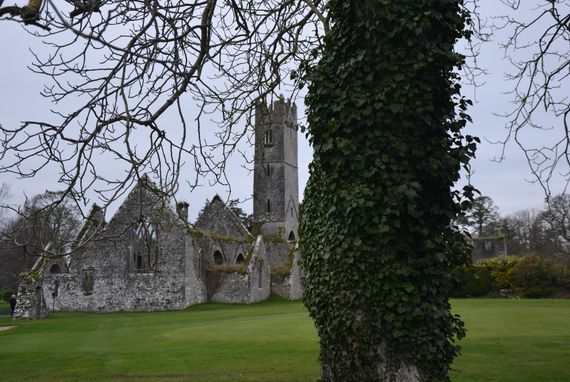
News 25. 12. 2015
The definitive guide to understanding Irish place names
3. Drum/Drom e.g Drumwood, Drumroe, Drumlane
Meaning: Ridge
“Drum” or “Drom” comes from the Irish word “Droim/Drom” meaning “ridge.” Place names such as Drumwood, or “Coill an Droma” in Irish, mean “The Wood of the Ridge.”
4. Carrick/Carrig/Carraig e.g Carrickfergus, Carrickarone, Carrigcastle
Meaning: Rock
You’ll find place names involving “Carrick” more common in the rockier parts of the country. “Carrick” comes from the word “Carraig” meaning “Rock”. If we take Carrickfergus (“Carraig Fearghais”) it probably means “Fearghas’ rock.”
5. Cloch/Cloich/Clough/Clogh e.g. Ballyclogh, Dromclogh, Kilclogh
Meaning: Stone, stone building
Another one for the rockier parts of the country, although it can be found in the majority of counties and it could also refer to a single standing stone. If we take Ballyclogh (or “Baile Cloch”), it simply means “the town of the stone.”
6. Cloon/Clon e.g. Clonmel, Clonmore, Clontarf
Meaning: Meadow, pasture
The “Battle of Clontarf“ or the “Battle of the Bull’s Meadow”? “Cloon” and “Clon” come from the word “cluain,” meaning that names such as Clonmore (“Cluain Mhór”) literally mean “a big meadow.”
7. Loch/Lough e.g. Loughinisland, Loughaunanillaun, Ballinlough
Meaning: Lake
Possibly one of the most well-known as we still use the word “lough” but the use of “loch/lough” in a place name is a sure sign that there is water in the area. The Irish for “Ballinlough” is “Baile an Locha” meaning “The Lake Town.”
8. Letter/Leitir e.g Letterkenny, Lettermore, Lettermacaward
Meaning: Hillside
An appropriate name for Letterkenny in the hills of Donegal. Letterkenny comes from “Leitir Ceannain” meaning “Cannon’s Hillside.”
9. Lis/Lios e.g. Lismore, Liscasey, Coollisteige
Meaning: Ring-fort, enclosure
The past or present locations of ring-forts or enclosures can be discovered through place names including “lis.” The town Lismore (“An Lios Mór”) means the “Big Ring-Fort.”
10. Temple e.g. Templebar, Knockatemple, Ballintemple
Meaning: Church
Templebar or “Barra an Teampaill” does not means the “Bars of the Church” but the “top of the church.” How times have changed!
Of course, as with most methods, it’s not completely fool proof. Place names change over time and because of the rich diversity in dialects within our small country, the same word can be pronounced a completely different way a few miles over, altering the place names as it goes.
Pull up the car along your journey and go searching for the geographical features that the place names mention now and again, it gives the small rural towns that extra piece of beauty!
Frances Mulraney @FrancesMulraney
Václav Bernard



